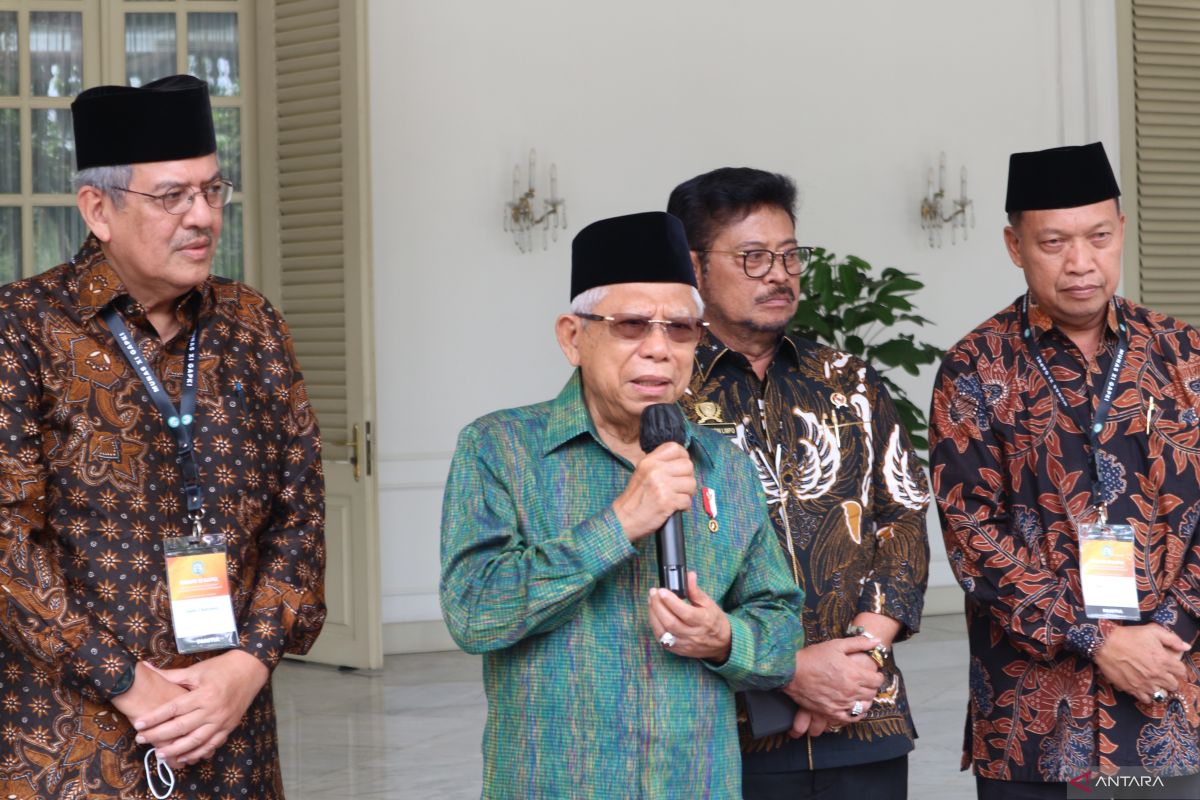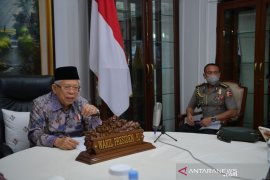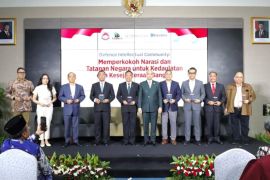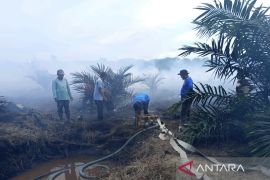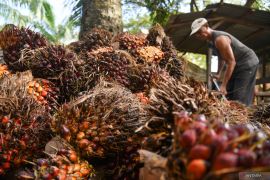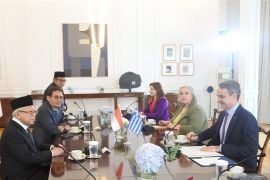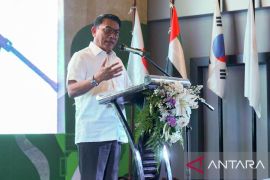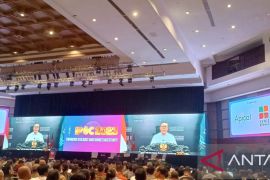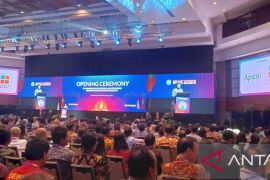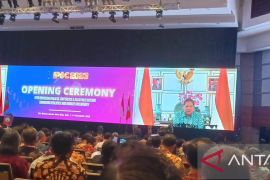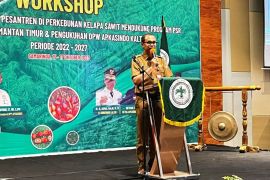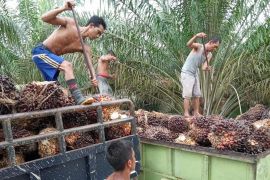This means that a sustainable palm plantation is no longer an option, as it (has become) a mustJakarta (ANTARA) - The palm oil and derivative products industry would still serve as a crucial pillar of the national economy, Vice President Ma'ruf Amin stated.
"I have confidence that in future, the palm industry will still be an important pillar of the national economy," Amin stated at the Vice President's Palace here on Friday.
The vice president made the remark while opening the11th national meeting of the Indonesian Palm Oil Association (GAPKI), also attended by Agriculture Minister Syahrul Yasin Limpo and Head of GAPKI Joko Supriyono.
Currently, the palm oil industry has been one of the national economic backbones, the vice president affirmed.
In 2022, foreign exchange from the palm oil industry reached US$39.28 billion, thereby making the figure the highest as compared to past years.
"Palm is gift from the God Almighty to Indonesia, which we much be grateful for," the vice president remarked.
Indonesia's climate and soil conditions allow for palm to thrive, thereby ultimately contributing positively to the national economy, he elaborated.
Amin remarked that the palm oil industry met a third of the global demand for vegetable oil.
It was estimated in 2035 that the demand for oleofoods, or palm products for food, would reach US$106.16 billion, and demand for the oleochemical industry would reach US$190 billion, he remarked.
He stressed the need to tap into the potential of the palm oil industry.
"Palm industry also provides vast job opportunities for some 16.2 million workers, directly or non-directly. This means that a sustainable palm plantation is no longer an option, as it (has become) a must," he emphasized.
Hence, the government consistently improves palm management efforts, such as by formulating the National Action Plan on Sustainable Palm Plantation for 2019-2024.
"Among the targets we aim for are the farmers' capacity and capability improvement; plot status legalization; use of palm as new, renewable energy; and pursuing diplomacy to achieve sustainable palm plantation," the vice president elaborated.
The goals could be met if all stakeholders, including GAPKI, played their part well.
Head of GAPKI Joko Supriyono affirmed that the Trade Ministry had yet to reimburse Rp344 billion (US$22.5 million) for the cut in cooking oil price during January 19-31, 2022, period, and a verification process was still underway.
"It is in progress because it must be done by a third party," he remarked.
Once the identification process concludes, it will be followed with recommendation from the Trade Ministry and Industry Ministry, and then the Palm Oil Plantation Fund Management Agency (BPDPKS) reimburses it, he concluded.
Related news: Govt, private sector agree to build CPO reference price
Related news: Govt seeks to build plantation resilience through palm revitalization
Related news: Indonesia, Malaysia agree to protect interest in palm oil sector
Translator: Desca Lidya N, Mecca Yumna
Editor: Sri Haryati
Copyright © ANTARA 2023
